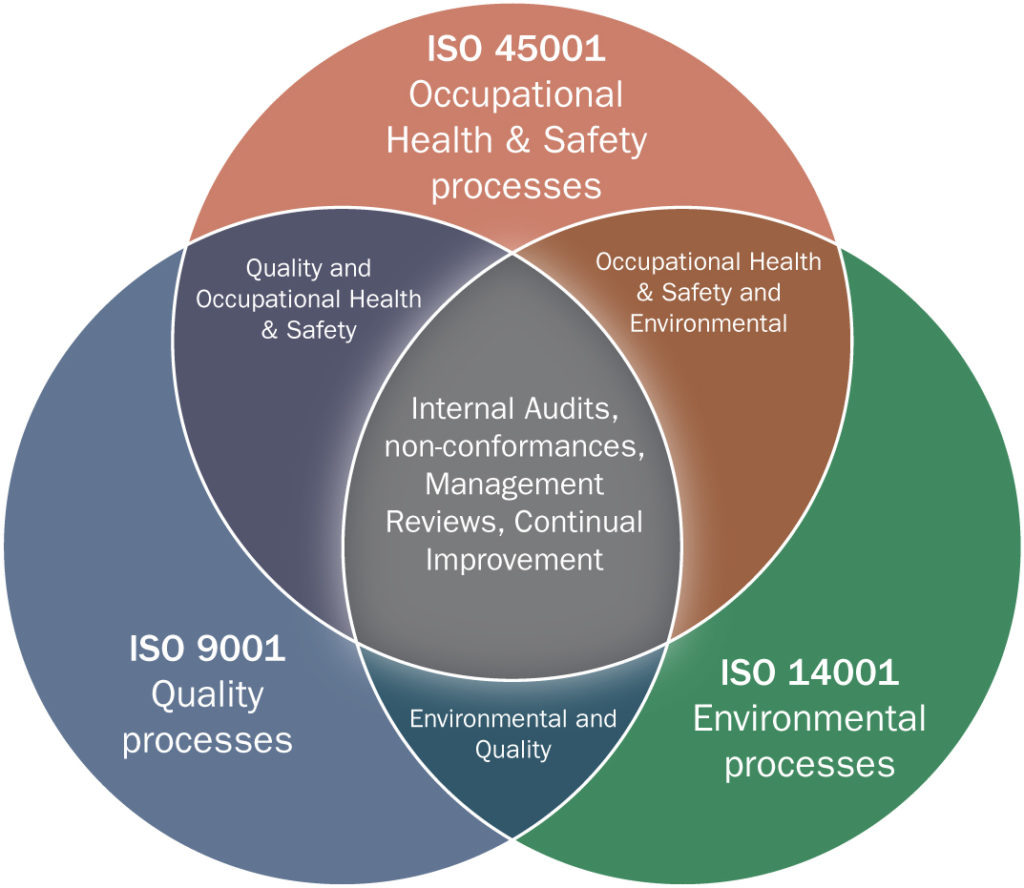
Integrated Management System (IMS)
An Integrated Management System (IMS) combines all aspects of an organization’s systems, processes and Standards into one smart system. This merger allows a business to streamline its management, save time and increase efficiency by addressing all elements of the management system as a whole.
A successful IMS cuts the unnecessary hassle and work of multiple management systems. For example, instead of holding audits for each Standard, you will only need to hold one. An IMS allows these processes to be combined so that they simultaneously cover all Standard-specific requirements.
We provide IMS Services in these sectors:
1) City Gas Distribution
2) Natural Gas Pipeline Network
What are the benefits of an IMS?
Performance
Streamlined procedures and continual improvement can help to push your business with better quality, improved health and safety, and increased productivity.
Speed and cost-effectiveness
Integrated management with shared tasks and processes mean the costs and time needed to implement and maintain your system could be reduced. By conducting just one audit and one management review, you can save both time and money and senior staff can move onto other essential tasks.
Consistency
Integrating your systems strips away complexity. With aligned systems and shared processes, you can make your procedures more logical and coherent. It will make common business goals stand out and give your business clearer, more defined objectives for success.

In an integrated management system, the whole is greater than the sum of its parts. Successfully integrating your management systems can have a number of very tangible benefits for your organization, including:
-Avoiding duplication of effort
-Making more effective use of senior management time.
-Using resources to implement and manage systems in a more efficient manner.
-Achieving more cost-efficient certification.
-Reducing audit fatigue.
What’s Included in an IMS?
An IMS may look different for every organization. However, here are some of the systems that you’ll commonly find consolidated in an IMS:
Environmental Management System (EMS)
An EMS is a system in place to ensure that organizations are continuously working to improve their environmental performance and reduce their impact. These systems follow the ISO 14001 standard for environmental management systems.
Safety Management System (SMS)
Also known as SMS, these systems are for improving an organization’s health and safety performance. This is to ensure employees, customers, and everyone else involved in operations remains safe throughout the entire process.
Food Safety Management System (FSMS)
As the name suggests, an FSMS is commonly used in the food industry to ensure customer and employee safety.
Energy Management System (EnMS)
These systems are in place to manage an organization’s consumption. An EnMS is there to make sure that the organization only consumes rough energy to accomplish its processes, reducing waste in the process.
Information Security Management System (ISMS)
These are systems that show how organizations should manage their information security to ensure that the organizations and customers’ data is as safe as possible.